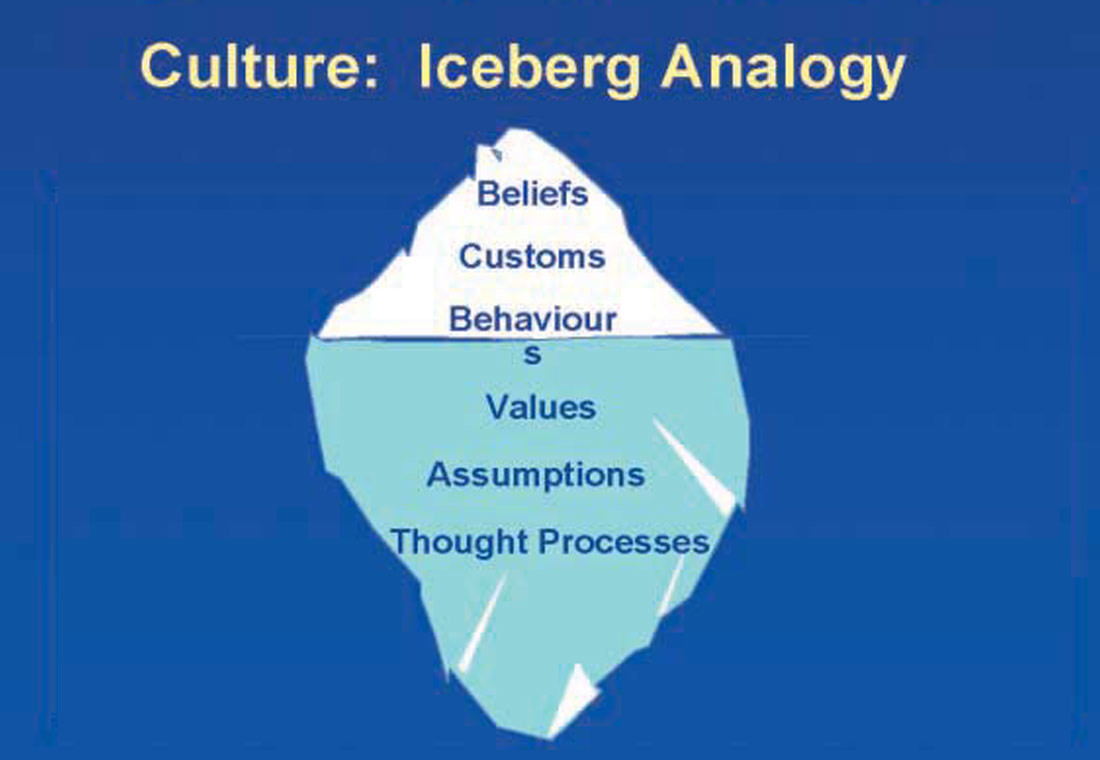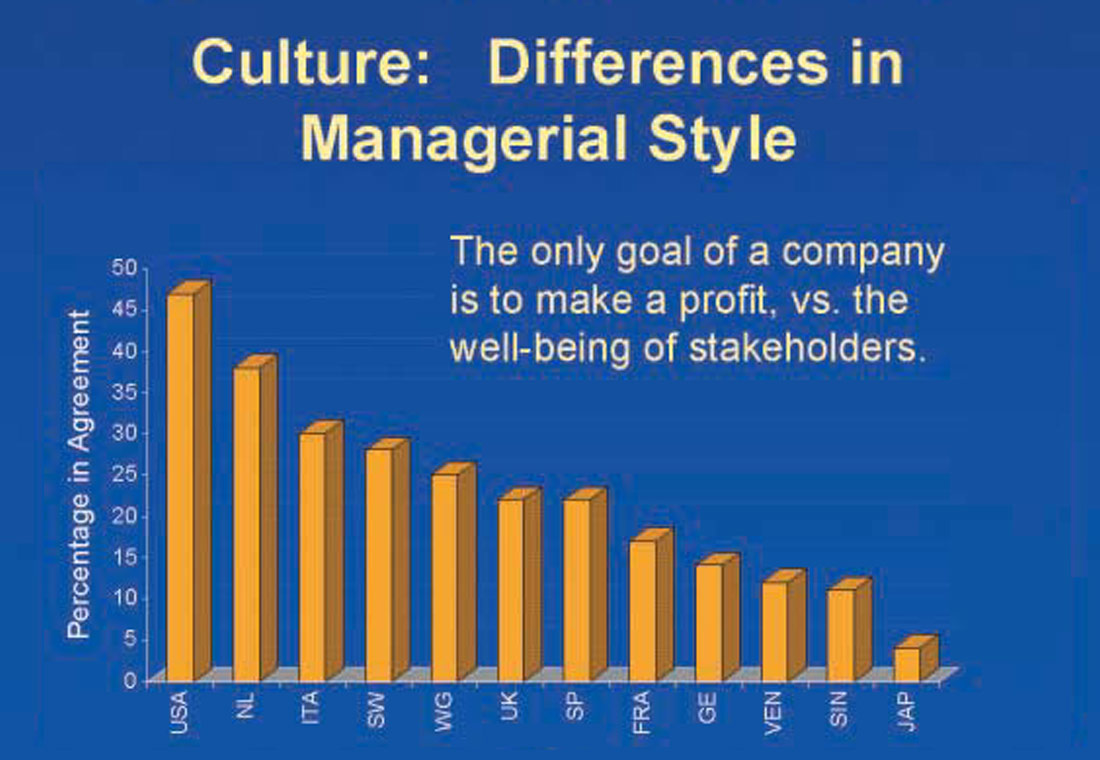Verité en-deça des Pyrénées, erreur au delà.
There are truths on this side of the Pyrenees which are falsehoods on the other.
–Blaise Pascal, Pensées
Introduction
Global managers - and the increasing number of Albertans working abroad - must be skilled communicators. Indeed, in a world with more than 37,000 transnational corporations and 207,000 foreign affiliates, cross-cultural communications is the most basic skill that global managers must cultivate. In my view, it is also the skill in which our highly technical, increasingly financially driven profession can and must improve - certainly if it wishes to better its unenviable operational and financial performance abroad.
Communications
Studies have demonstrated that managers spend 75% of their time writing, talking and listening; that is, communicating. In fact, communication is the most important tool for getting things done. It can be a help or hindrance. It transfers information, but all too often it also distorts messages, causing disappointment and ineffectiveness. These problems are only compounded in a cross-cultural setting.
Do communication styles differ?
If we examine verbal communications styles (fig. 1), and listen to how people speak, it becomes quickly apparent that styles do differ amongst various cultural groups. No doubt Canadians would be appalled at the ‘free for all’ that appears to be the Latin style. Then again, Latins might think that Canadians are extremely polite, or they lack conviction in what they are saying. Styles differ and can impact what is understood.

What is Culture?
Culture is the values, assumptions and thought processes which are shared by any group of people. It gives a people a sense of who they are and impacts behaviour. It’s the way we do things.
The iceberg analogy (fig.2) is often used to appreciate culture, at least at a very superficial level. Values, assumptions and thought processes underlie our most committed beliefs, cherished customs and singular behaviours.

Each of us has been socialised in a unique environment. Culture poses communications problems because there are so many variables unknown to the communicators. As the cultural variables and differences increase, the number of communication misunderstandings also increase.
Are managerial styles conditioned by culture?
There is ample evidence to conclude that managerial philosophies and styles are culturally conditioned. When one compares cultures against various indices such as individualism versus collectivism, power distance versus uncertainty avoidance, masculine versus feminine (not to be confused with gender differences), it is all too clear that cultural differences can be profound.
It becomes even clearer that a better understanding of cultural differences can assist in facilitating communications, guiding negotiations, constructing joint ventures, and improving employee relations to name a few. Examining the role of a corporation in terms of the profit motive (fig. 3) can lead us to a better appreciation of all the above. For example, a Canadian firm wishing to enter into a joint venture agreement with Pemex, Mexican petroleum company, would be well advised to appreciate the role this firm plays in the lives, and psyches, of Mexicans before it begins to cultivate a relationship.

So where does all this leave us? Having only touched the tip of the iceberg on the matter, we can make some suggestions.
- Global managers need to listen ‘actively’ more than they speak. Listening demonstrates respect and concern. It tends to diminish the magnitude of problems. Listening can exert considerable power over what is heard and conveyed, improving communications.
- Global managers need to be more empathetic; that is, ‘to put oneself in the other’s shoes’. It helps us to reach a more positive view of the other person, because it helps us to bet understand their behaviour. Empathy is crucial to appropriate protocol and technology transfer. The latter is a common entry strategy for Canadian firms seeking to do business abroad.
- Global managers need to improve their second language skills. Unfortunately, second language skills have diminished in Alberta, in contrast to other jurisdictions. Interestingly, support for second languages in Edmonton is greater than in Calgary. Policies to encourage second language skills, and the necessary government and private sector leadership is more clearly apparent in Edmonton.
- Global managers need to reexamine, and largely modify, the competencies they choose to recruit international staff. To this end, they need to recruit more aggressively on the basis of soft skills. Furthermore, importing expertise is problematic. First, it often assumes prior international experience is a predictor of success. It is not. Second, it is expensive and can often create a substantial, and unnecessary, financial burden. Third, in an increasingly competitive, and fluid, human resource environment, firms risk alienating, and losing, their best talent. Firms such as CPR, Enbridge and Transalta offer valuable positive lessons in this regard.











Join the Conversation
Interested in starting, or contributing to a conversation about an article or issue of the RECORDER? Join our CSEG LinkedIn Group.
Share This Article